Mission

Since Japan is surrounded by the sea, all of the attack against Japan will be launched across the sea. Also, the trade amount of Japan is second in the world and maritime transportation is obviously our life-line. Thus, Maritime Defense Force is regarded as a front line of Defense. Maritime Defense capability consists of Mobility, Multi-purpose capability, Flexibility, Durability and Internationalism, by which we operate promptly, widely and continuously for long period representing our nation.
With these features, Self-Defense Fleet takes Defense of Japan and Protection of Maritime Transportation as our missions, and we will accomplish our missions in order for the survival of Japan with two basic concepts of construction of security and joint operation/ JPN-US cooperation.
Territory Defense
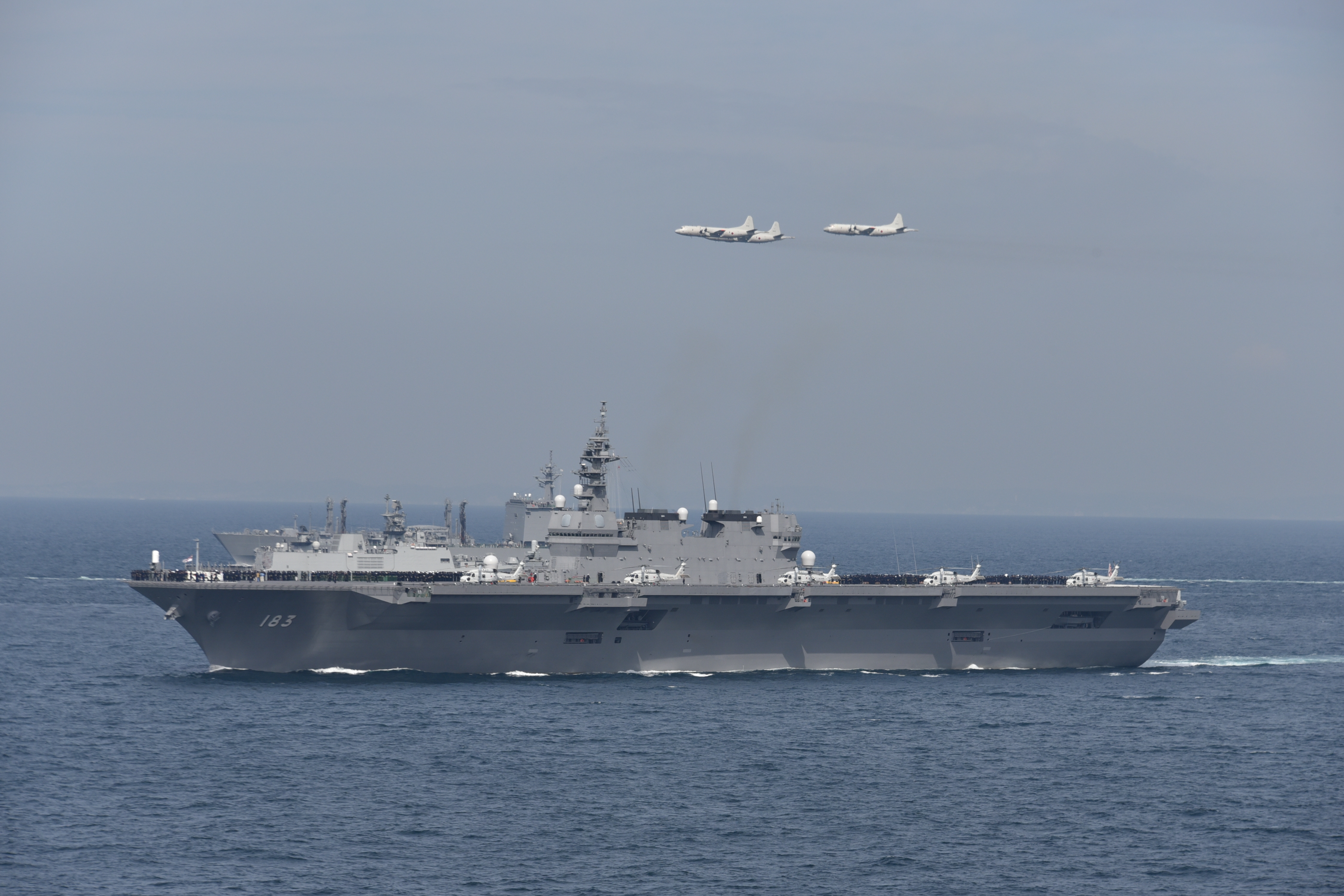
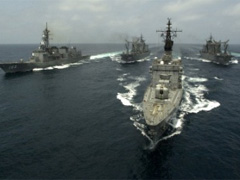
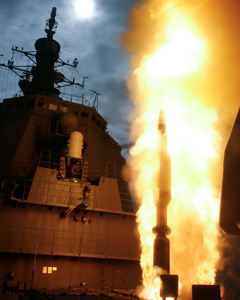
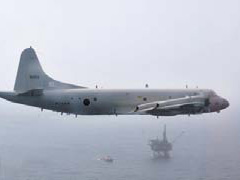
Since Japan is surrounded by the sea, all of the attack against Japan will be launched across the sea. Self-Defense Fleet organize a variety of operations and cope with the attacks at front lines in order to prevent them from reaching our lands.
In the areas surrounding Japan, there are concerns of smugglings and illegal entry, infringement by vessels related with crimes such as spy boats, activation of neighboring naval ships. Self-Defense Fleet defend the peace and safety of surrounding areas by continuous surveillance and reconnaissance.
Preparation against Full-Scale Aggression
A military attack against Japan, an island country, can be envisaged to be conducted using warships and other naval Force as well as aircrafts. Self-Defense Fleet will defend surrounding areas conducting coordinated surface, undersea and (local) air defense operations in cooperation with Ground and Air Self-Defense Forces units. With cumulative successes of these operations, we prevent enemy from advancing and deplete opponent force.
Effective Responses to New Threats and Diverse Contingencies
In view of the significant changes in the security environment resulting from the increased proliferation of weapons of mass destruction and ballistic missiles, the activities of international terrorist organizations and other factors, the National Defense Program Guidelines states that the important role of our defensive capabilities is to serve as an effective response to new threats and diverse situations.
It illustrates the nature of these new threats and diverse situations with five different categories of response. These are: (1) Response to ballistic missile attacks, (2) Response to attacks by guerrillas or special forces, (3) Response to the invasion upon offshore islands, (4) Warning and surveillance in sea areas and airspace surrounding Japan and response to airspace invasion, and armed agent vessels and (5) Response to large or extraordinary disasters. Self-Defense Fleet responds to these missions primarily on the sea.
Patrol and Surveillance of the Sea
In order to respond in the event of situation such as aggression and violation of territorial waters, it is very important for us to observe the situation on the sea and undersea continuously by collecting and processing information to prepare for defense activities.
Self-Defense Fleet maintains our readiness and flexibility to secure the peace and safety of Japan by using ships and aircrafts in case of concerned emergency.
Sealane Defense
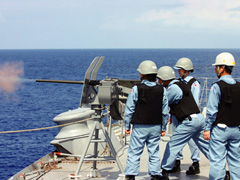
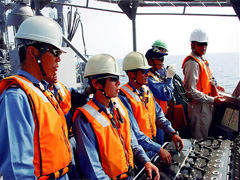
Japan depends energy sources and foods which are necessary for citizensâ lives and economic activities on maritime transportation. Thus, it is indispensable for us to keep the safety of maritime transportation in the trading area of oil route in order to protect our national interests.
On the sea lanes that suspend survival of Japan, we have a threats such as piracy and so on. Throughout the activities of Deployment Force for Support to Indian Ocean, Self-Defense Fleet maintain the safety of Sea Lanes of Communications.
Security and free use of the sea
Japan has long coastal line, spread islands and wide control areas and depends on economic prosperity and materials necessary for stable lives on maritime transportation. Therefore, in order for the security of peace and safety, maritime interests are important for safety of navigation and development of maritime resources which are basis of economical survival. To protect maritime interests, maintenance of order and safety is required.
However, in surrounding areas, we have increasing activities of neighboring ships and harmful events to maritime interests of Japan and security as well as concerns of issues such as piracy and proliferation of weapons of mass-destruction on the way from Middle East to surrounding areas of Japan via Malacca-Singapore Strait.